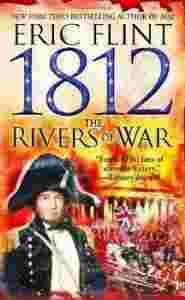|
Eric Flint’s acclaimed 1634: The Galileo Affair was
a national bestseller from one of the most talked-about
voices in his field. Now, in this extraordinary new
alternate history, Flint begins a dramatic saga of the
North American continent at a dire turning point,
forging its identity and its future in the face of
revolt from within, and attack from without.
In the
War of 1812, U.S. troops are battling the British on the
Canadian border, even as a fierce fight is being waged
against the Creek followers of the Indian leader
Tecumseh and his brother, known as The Prophet. In
Europe, Napoleon Bonaparte’s war has become a losing
proposition, and the British are only months away from
unleashing a frightening assault on Washington itself.
Fateful choices are being made in the corridors of power
and on the American frontier. As Andrew Jackson, backed
by Cherokee warriors, leads a fierce attack on the Creek
tribes, his young republic will soon need every citizen
soldier it can find.
What if–at this critical
moment–bonds were forged between men of different races
and tribes? What if the Cherokee clans were able to
muster an integrated front, and the U.S. government
faced a united Indian nation bolstered by escaping
slaves, freed men of color, and even influential white
allies?
Through the remarkable adventures of men who
were really there–men of mixed race, mixed emotions, and
a singular purpose–The Rivers of War carries us in this
new direction, brilliantly transforming an extraordinary
chapter of American history.
With a cast of
unforgettable characters–from James Monroe and James
Madison to Sam Houston, Francis Scott Key, and Cherokee
chiefs John Ross and Major Ridge–The Rivers of War
travels from the battle of Horseshoe Bend to the battle
of New Orleans, and brings every explosive moment to
life. With exquisite attention to detail, an
extraordinary grasp of history, and a storyteller’s gift
for the dramatic, Flint delivers a bold,
thought-provoking epic of enemies and allies, traitors
and revolutionaries, and illuminates who we are as a
nation, how we got here, and how history itself is
made–and remade.
From the Hardcover
edition.
|
|

